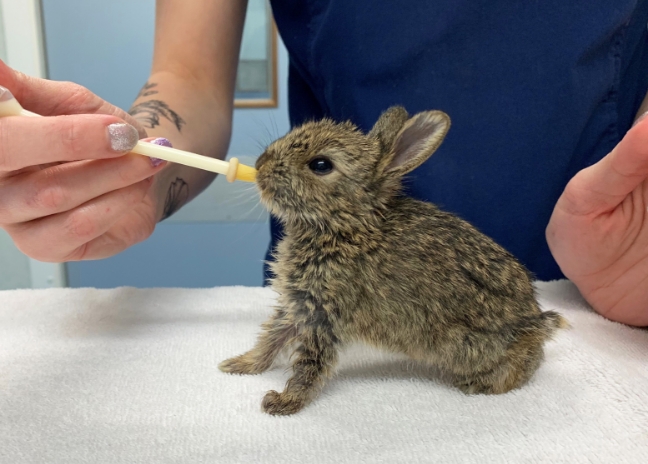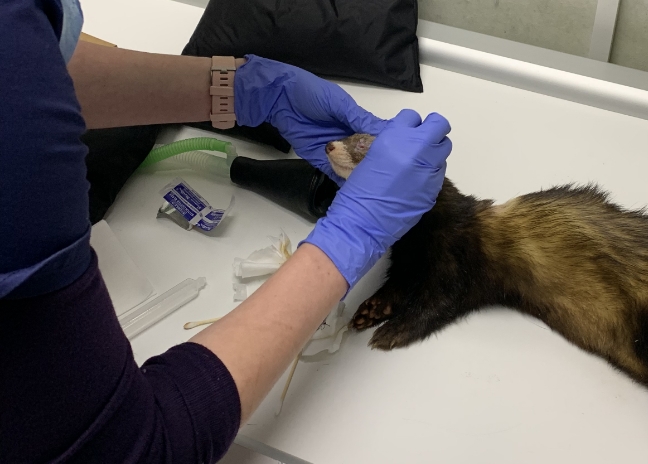24-Hour Emergency Helpline 01844 292292

Our Courses
We’re proud to be an approved training centre with both City & Guilds and the Skills & Education Group Awards. Our long-standing reputation for quality is recognised not only by awarding bodies but also by future employers who value the skills and knowledge our students gain.
Gain a nationally recognised Animal Management qualification with hands-on wildlife experience.
Our programme offers a unique blend of classroom learning and practical training, giving you both the academic knowledge and real-world skills needed for a career in animal care, conservation, or further study.
In the classroom, you’ll explore essential topics such as animal welfare, nutrition, anatomy, behaviour, disease management, and enclosure design. Learning is supported through written assignments, practical assessments, and—in some courses—exams. All teaching, assessments, and exams take place on-site, guided by our expert tutors who support you throughout your qualification and help you plan your next steps into higher education or employment.
Alongside theory, students spend around 60% of their time in our wildlife hospital, gaining invaluable hands-on experience in animal husbandry. This includes cleaning enclosures, preparing feeds, assisting in wards and rehabilitation enclosures, and supporting routine health checks. You’ll work directly with a wide variety of species—from hedgehogs and rabbits to doves and birds of prey—helping care for more than 1,000 wild patients each year.
This immersive, seasonally varied training gives you a rare insight into the world of wildlife care and conservation, while making a meaningful contribution to the recovery and release of sick, injured, and orphaned animals back into the wild.
Where are we?
We are located in Haddenham (HP17 8AF). There is parking available. The closest train station is Haddenham & Thame Parkway Station and there are various bus stops within walking distance of the hospital.
Our T Level Foundation Year: Animal Care is the perfect stepping stone to the T Level in Animal Management and Behaviour. Train at Tiggywinkles Wildlife Hospital in Haddenham and study at Buckinghamshire College Group, Aylesbury. Work with real animals, gain industry-recognised skills & prepare for your future T Level.
Nationally Recognised Qualifications
Strong foundations for your future in animal care.
Our classroom-based learning provides students with essential knowledge in animal health and welfare, supported by assignments and assessments designed to help them achieve outstanding results. These qualifications open doors to employment or progression into further and higher education.
Between 2014 and 2024, an impressive 98% of our learners progressed into employment or further study after completing their qualification with us.
Many of our Level 3 graduates go on to university, pursuing degrees in fields such as Zoology, Marine Biology, Animal Physiotherapy, Conservation, and Veterinary Nursing.
2025-26 Term Dates
Autumn Term – Thursday 4 Sept to Friday 19 Dec 2025
(Christmas Holidays – Sat 20 Dec 2025 to Sun 4 Jan 2026)
Spring Term – Monday 5 Jan to Friday 27 Mar 2026
(Easter Holidays – Sat 28 Mar to Sun 12 April 2026)
Summer Term – Monday 13 Apr to Friday 17 July 2026

Practical, hands-on learning sessions
We run practical learning sessions, where all students spend time training in all of the different areas of the Hospital, ‘hands on’ with our patients, assisting with their care and welfare – cleaning, feeding and moving – as part of the animal’s treatment and rehabilitation. Assessment in all of these areas is by practical assessments, with observations & questions.

On-site Assessments
Assessments are carried out on-site by our team of experienced, qualified Assessors, using a variety of methods including observation, assignments and questions & answers.
Do you have a question? We're here to help
If you have any questions about our courses, please email: education@tiggywinkles.org

